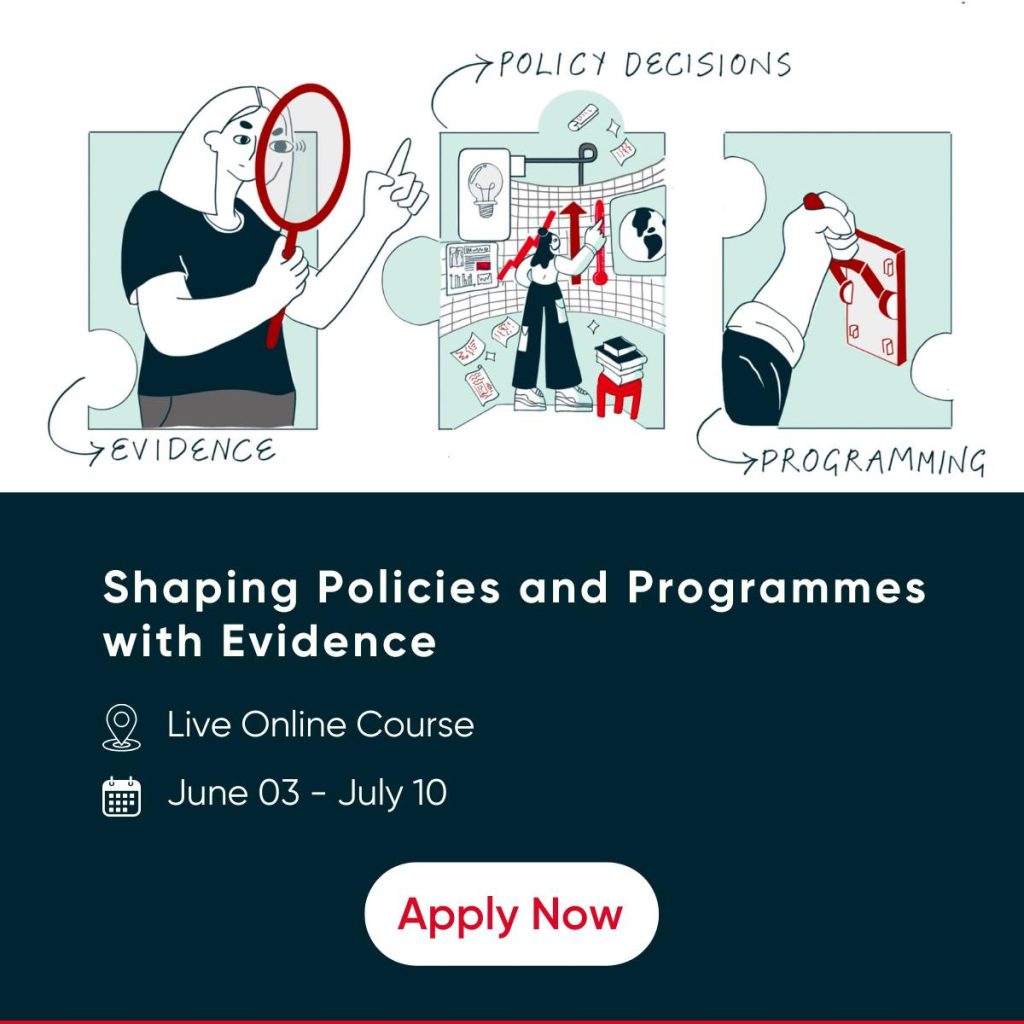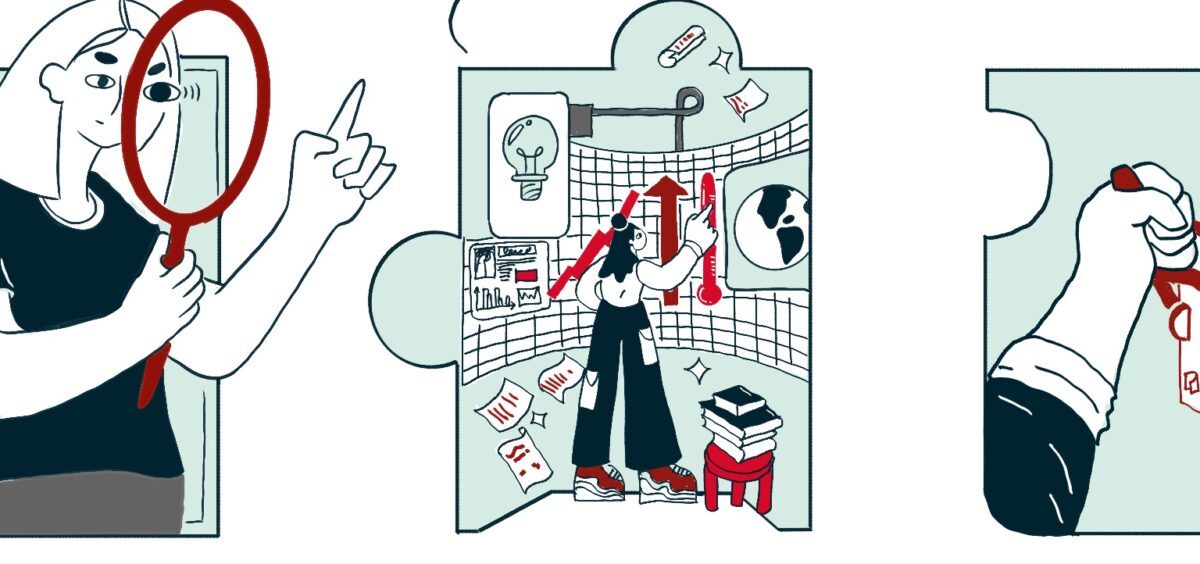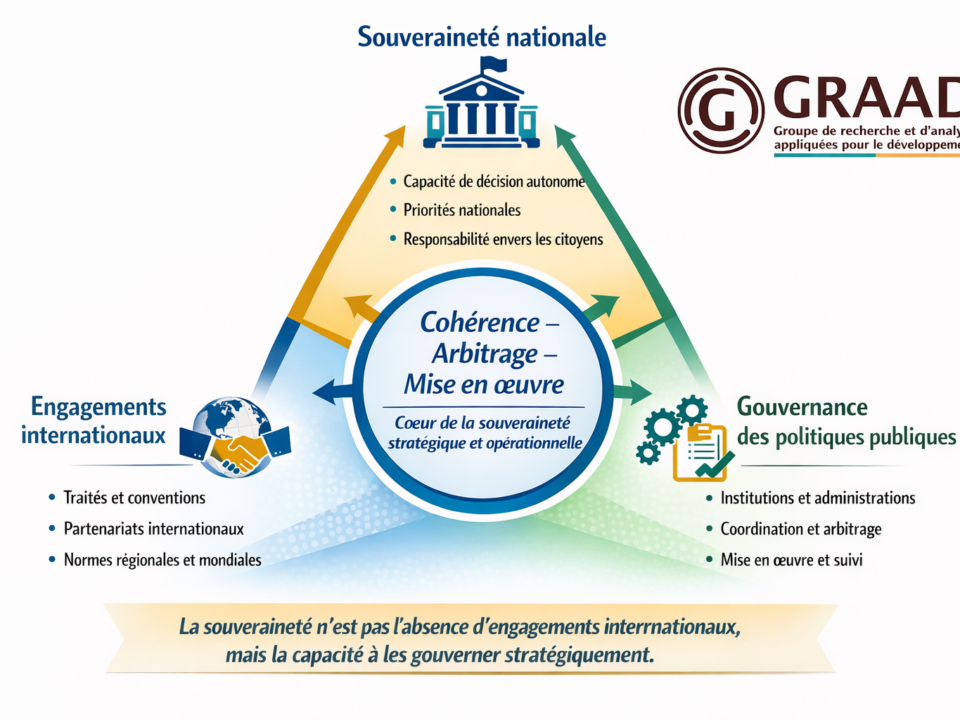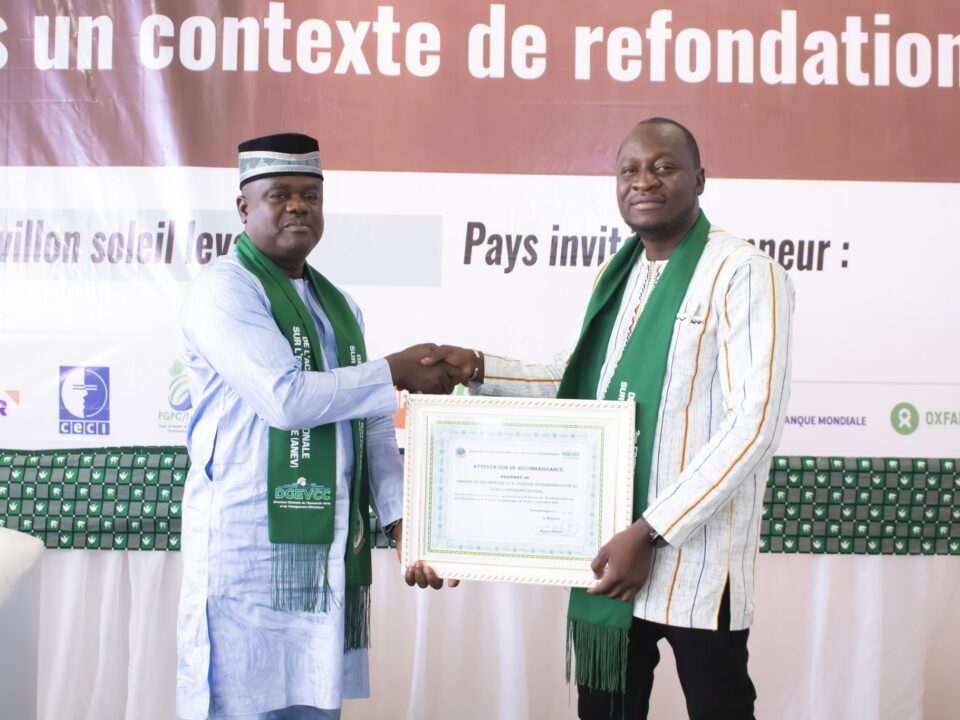
Fermeture pour congés de fêtes de fin d’année 2024
décembre 20, 2024
APPEL À CANDIDATURE : Programme de bourses pour les femmes de l’écosystème des données probantes et des politiques en Afrique francophone
mai 23, 2025This six-week online course will equip you with the concepts, skills and tools required to use evidence to inform policies and programmes. It will enhance your ability to rapidly assess, synthesise and communicate research effectively, enabling you to shape policy and practice in complex settings.
There is an explicit focus on the power analysis and influencing tactics, and active learning required to facilitate the consideration and use of evidence in the setting of agendas, development of policy or the design and implementation of interventions and programmes.
Since we began running the course in 2019, we have had the privilege of teaching and sharing learning from hundreds of individuals and dozens of organisations to promote better use of evidence to tackle global and local challenges.
Facilitators
The course is led by the IDS Knowledge, Impact and Policy cluster, which pioneered new approaches and adapted existing methodologies to bridge the supply of inclusive research with the demand for evidence from governments, multilaterals and development agencies.
Our course convenors have mobilised knowledge in response to urgent international crises, including Covid-19. They provide demand-driven knowledge services to governments, and evidence use capacity building and research to civil society organisations, governments, think tanks, universities and science initiatives, bilateral donors and multilateral agencies.
They are uniquely placed to bridge the theory and practice of getting evidence into use. They have between them decades of experience of:
- Designing theories of change and evidence impact evaluations
- Delivering evidence synthesis services and accompanied learning journeys for implementation and research communications.
Who is it for
You will join a diverse international cohort of policy, programme and evidence entrepreneurs from governments, development agencies, charities, social enterprises and research organisations, to share learning and gain new insights into improving policy and programmes through the better use of evidence.
This online course attracts individuals and groups seeking to enhance their evidence literacy, and to more effectively promote evidence informed policy, practice and programming for progressive social, economic and environmental change.
Past course participants include:
- Advocacy Unit, African Population and Health Research Centre
- Senior Advisor, Frontline AIDS
- Senior Manager, International Initiative for Impact Evaluation (3ie)
- Consortium Manager, Norwegian Refugee Council
- Evidence & Advocacy Officer, Transparency International UK
- Policy Analyst, Christian Aid
- Monitoring and Evaluation Specialist, International Rice Research Institute
- Manager, Doha International Family Institute, Qatar Foundation
- Programme Manager, International Development Law Organisation
- Members of the UNICEF China Social Policy team
- Programme Coordinator, CGIAR GENDER Platform
- Researcher, School for Development Studies of the University of Cape Coast
- Researcher, BIGD – Bangladesh Institute of Global Development
- Programme Officer, GIZ -Deutsche Gesellschaft für Internationale Zusammenarbeit
- Programme Officer at IDRC
- Programme Officer, UNU-WIDER
How you’ll learn
With busy professionals in mind, the course is delivered twice a week over a six-week period to fit in around your schedule.
It combines live and pre-recorded lectures, plenary sessions, small study groups and workshops as well as some self-directed study. You will tailor the course content to your own needs.
Perhaps you are a government official seeking to use evidence to inform policy, or a researcher seeking to synthesise and communicate results to non-specialists, or a programme implementer seeking to adapt interventions. The core lectures cover the key theories and concepts underpinning all these evidence use processes.
A selection of additional units will permit you to personalise the course precisely to your interests and needs. They include learning tools and group work focused on different dimensions of evidence use for policy, practice and programming.
The course workbook then gives you the opportunity to directly apply this learning to your own programmes or strategies.
Live lectures occur every Tuesday. The optional units of your choice are offered on Thursdays.
Each week there is a self-directed learning assignment.
Outcomes
This professional development course will enable you to:
- Locate your work in the theory and practice of evidence informed decision making.
- Apply implementation science theories and frameworks to your policy and programming.
- Re-evaluate your organisation’s or programme’s culture and practice of evidence use.
- Adapt to fast-changing policy or programme demands
- Deploy analytical tools for understanding how evidence may support behaviour change.
- Systematically identify and appraise policy relevant evidence.
- Frame research for policy and programming
- Clearly communicate complex research information to non-specialist audiences.
Entry requirements
The course is taught in English. To derive the maximum benefit from the course, you should be proficient in English and able to take an active part in discussions. Your English needs to be of an intermediate standard or higher. Ideally you will have an International English Language Test System (IELTS) score of 6.5 or above, or a Common European Framework for Languages (CEFR) score of B2 or above.
Participants will need an internet connection sufficient to stream live video (Zoom, Facetime or similar) in order to engage fully with the course.
If you have any questions about the entry requirements for this online course, please contact our dedicated short courses team at shortcourses@ids.ac.uk.
How to apply

Please read our short course booking Terms and Conditions (pdf) and IDS Code of Conduct (pdf).
The application procedure is a three-stage process:
Stage 1: Apply by completing the online application form. Deadline for applications is 16:00 GMT on 13 May 2025.
Stage 2: You will be notified within two weeks as to whether your application has been approved or not. Successful applicants will receive an acceptance email and details of how to pay the course fees. Places on the course are not guaranteed until fees have been received.
Stage 3: Once fees have been received, you will be sent confirmation of your place on the course and a letter to support your visa application (if required).
This is course is run regularly. If you can’t make it to this date, you can register your interest in future sessions by contacting us at shortcourses@ids.ac.uk.
Bespoke versions of this course can also be planned and delivered in country for a single institution or group of institutions and partners, by arrangement. Please contact shortcourses@ids.ac.uk for further information.




